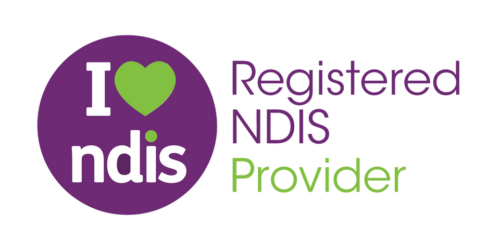The National Disability Insurance Scheme (NDIS) is a transformative initiative in Australia, designed to provide support to individuals with a significant and permanent disability. Among the various disabilities catered to by the NDIS, mental health conditions, often referred to as psychosocial disabilities, hold a significant place.
The NDIS recognises the profound impact mental health conditions can have on a person’s ability to participate in daily activities and the community.
Understanding NDIS Supports for Mental Health
The NDIS provides a range of supports for individuals with mental health conditions. These supports are designed to assist individuals in achieving their goals, enhancing their independence, and improving their participation in the community and workforce. Supports can include therapy services, personal care assistance, access to community and social activities, employment support, and more. The specific supports provided are tailored to each individual’s unique needs and goals, as outlined in their NDIS plan.
How to Access NDIS Mental Health Supports
Accessing NDIS mental health supports begins with understanding the eligibility criteria. To be eligible for NDIS support due to a mental health condition, an individual must demonstrate that they have a permanent disability that significantly impacts their ability to participate in everyday activities. This includes showing that the condition is likely to be lifelong and that it requires support from others or substantially reduces functional capacity in one or more of the areas of communication, social interaction, learning, mobility, self-care, or self-management.
Once eligibility is established, the next step is to make an Access Request. This involves providing information about the individual’s disability and the impact it has on their life. Evidence of the individual’s disability and its impact, such as reports from medical professionals, can be very helpful in this process. The NDIS may also request additional information or assessments to help them make a decision.
If the Access Request is approved, the individual will then work with an NDIS representative to create their NDIS plan. This plan will outline the individual’s goals and the supports that will be funded by the NDIS to help achieve those goals. The planning process is a collaborative one, and individuals are encouraged to bring along a family member, friend, or other support person to their planning meeting.
It’s important to note that the NDIS is not intended to replace other mental health services, but rather to work alongside them. This means that individuals may also receive support from other mental health services in their community, in addition to the supports provided by the NDIS. Here’s a comprehensive guide to applying for NDIS mental health supports.
The Role of Psychosocial Disability in NDIS
Psychosocial disability is a term used to describe the disabilities that may arise due to mental health issues. These disabilities can significantly impact a person’s ability to participate in daily activities and the community. The NDIS recognises psychosocial disability and provides supports to individuals who meet the eligibility criteria.
In the context of the NDIS, psychosocial disability refers to the social and functional impacts of severe and enduring mental health conditions. These impacts can include difficulties with communication, social interaction, learning, mobility, self-care, and self-management. The specific impacts will vary for each individual, depending on their mental health condition and their personal circumstances.
The NDIS provides supports to individuals with psychosocial disability to help them achieve their goals and improve their participation in the community and workforce. These supports can include therapy services, personal care assistance, access to community and social activities, and employment support. The specific supports provided are tailored to each individual’s unique needs and goals, as outlined in their NDIS plan. Learn more about psychosocial disability and the NDIS.
Making the Most of Your NDIS Plan for Mental Health
Once you have an NDIS plan in place, it’s crucial to utilise it effectively to support your mental health. This involves understanding your plan, knowing what supports are available, and actively engaging with your service providers.
Your NDIS plan will outline your goals and the supports that will be funded by the NDIS to help achieve those goals. It’s important to familiarise yourself with these details and to communicate regularly with your service providers to ensure that your supports are being delivered as planned.
In addition to the supports provided by your service providers, your NDIS plan may also include funding for capacity building. This can include training to help you develop new skills, therapy to improve your mental health, and supports to help you engage with the community and find employment.
Regularly reviewing and updating your plan is also essential to ensure it continues to meet your evolving needs. Your plan will be reviewed at least every 12 months, but you can also request a review at any time if your circumstances change or if your supports are not working as they should.
Remember, the NDIS is there to support you, and you have the right to have a say in your supports and to receive high-quality services. Don’t hesitate to speak up if something isn’t working or if you need additional support. Find out more about making the most of your NDIS plan for mental health.
The Future of NDIS and Mental Health
The NDIS continues to evolve to better meet the needs of individuals with mental health conditions. As we look to the future, we can expect ongoing improvements in the accessibility, quality, and range of NDIS mental health supports. This progress will be driven by ongoing feedback, research, and advocacy efforts, ensuring the NDIS remains responsive to the needs of individuals with mental health conditions.
FAQs
What mental health supports does the NDIS provide?
The NDIS provides a range of supports for individuals with mental health conditions. These can include therapy services, personal care assistance, access to community and social activities, and employment support.
How can I access NDIS supports for mental health?
Accessing NDIS supports for mental health involves a process of application and assessment. Individuals must provide evidence of their mental health condition and demonstrate how it significantly impacts their daily life and ability to participate in the community.
What is psychosocial disability and how does the NDIS help?
Psychosocial disability refers to the social and functional impacts of severe and enduring mental health conditions. The NDIS recognises psychosocial disability and provides supports to individuals who meet the eligibility criteria.






 James
James 

